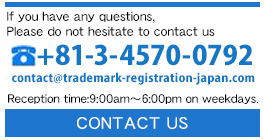UN launches awareness campaign against good without registered trademark or counterfeit goods
The United Nations has launched a new awareness raising campaign about the dangers of goods without trademark and their links to crime. According to the Vienna-based UN Office on Drugs and Crime (UNODC), counterfeit products pose a serious threat to the wellbeing of people in developing countries and can be a supporting factor for organized crime networks. The illicit trafficking and sale of counterfeit goods provides criminals with a significant source of income and facilitates the laundering of other illicit proceeds.
To help address the problem a global campaign called “Counterfeit: Don’t buy into organized crime.” has been launched by the UNODC. Its message is to “look behind” the production of counterfeit goods and to make consumers understand the complexities of the trade, which it says, amounts to a whopping $250 billion per year.
The campaign will begin on January 14, 2014, with a public announcement and video which will be broadcast in the heart of New York City, Times Square, and thereafter will be aired by several international television stations.
In a press release, the UNODC describes counterfeiting as a crime which touches “virtually everyone in one way or another” and that counterfeit goods, whether drugs or consumer products, can pose a serious risk to health and safety.
With no legal regulation and very little recourse, consumers are at risk of injury and, in some cases, death from unsafe and faulty counterfeit goods. Tyres, brake pads and airbags, aeroplane parts, electrical consumer goods, baby formula and children’s toys are just some of the many different items which have been counterfeited. Fraudulent medicines which do not registered to have any trademark present a very serious health risk to consumers.
“In comparison to other crimes such as drug trafficking, the production and distribution of counterfeit goods present a low-risk/high-profit opportunity for criminals,” said Yury Fedotov, UNODC’s executive director on the day of the campaign’s launch.
Fedotov added: “Counterfeiting feeds money laundering activities and encourages corruption. There is also evidence of some involvement or overlap with drug trafficking and other serious crimes.”
UNODC also noted that counterfeiting involves a range of ethical issues that are often overlooked, including exploitation of labour and migrant smuggling, as well as constitutes environmental challenges due to the lack of any regulations.
Trademark Registration in Japan
Patent Attorney:Hiroshi Oogai
Address:304 BUREX Hirakawacho 1-5-15 Hirakawa-cho,
Chiyoda-ku, Tokyo
Phone:+81-3-4570-0792
Mail:contact @ trademark-registration-japan.com









